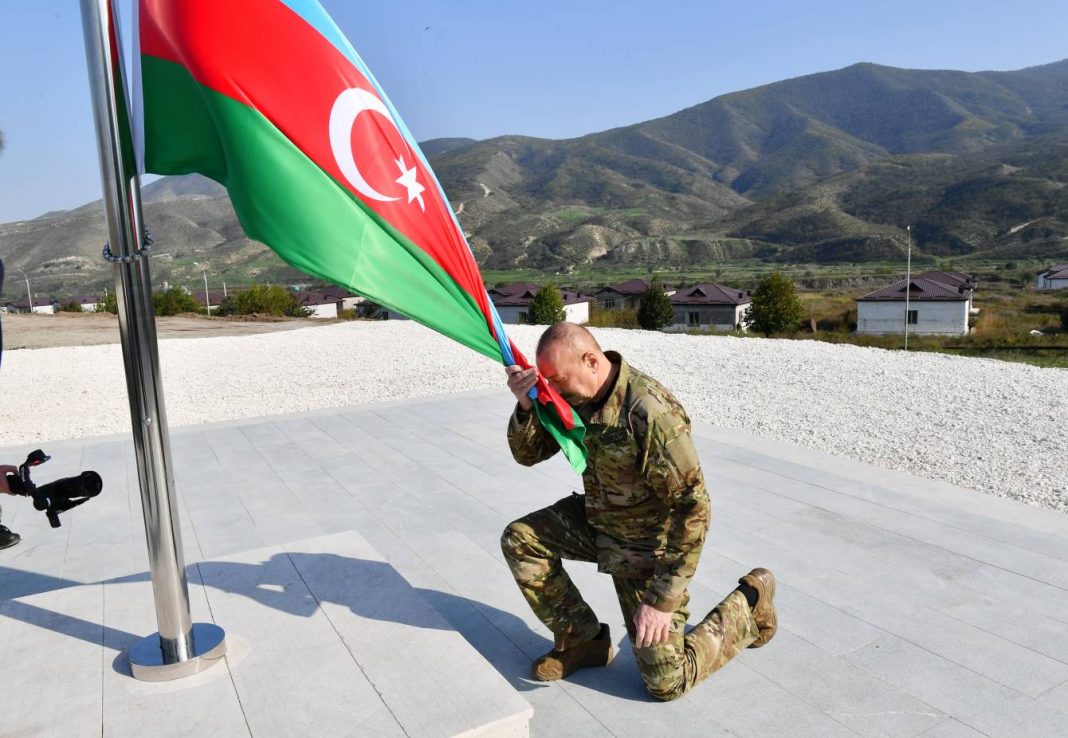On December 7, 2023, President of Azerbaijan Ilham Aliyev signed a decree on holding early presidential elections in the republic on February 7, 2024.
The vote was initially supposed to take place in April 2025. In an interview with local TV channels on January 10, Aliyev said that the main reason for the decision on early elections was the complete restoration of the country’s sovereignty after the anti-terrorist operation in Karabakh.
The President of Azerbaijan is elected for seven years. Ilham Aliyev, who succeeded his father, Heydar Aliyev, has been in power for 20 years. In 2009, he held a referendum on amendments to the Constitution and introduced the rule of unlimited elections for one person. In 2016, he increased the presidential term from five to seven years. The last presidential election took place on April 11, 2018.
In this paper, Ascolta analyses the socio-political situation in Azerbaijan against the background of the latest events in Nagorno-Karabakh, as well as on the eve of early presidential elections, which, apparently, will extend the presidency of Ilham Aliyev for another seven years.
This Content Is Only For Subscribers
Aliyev starts and is already winning
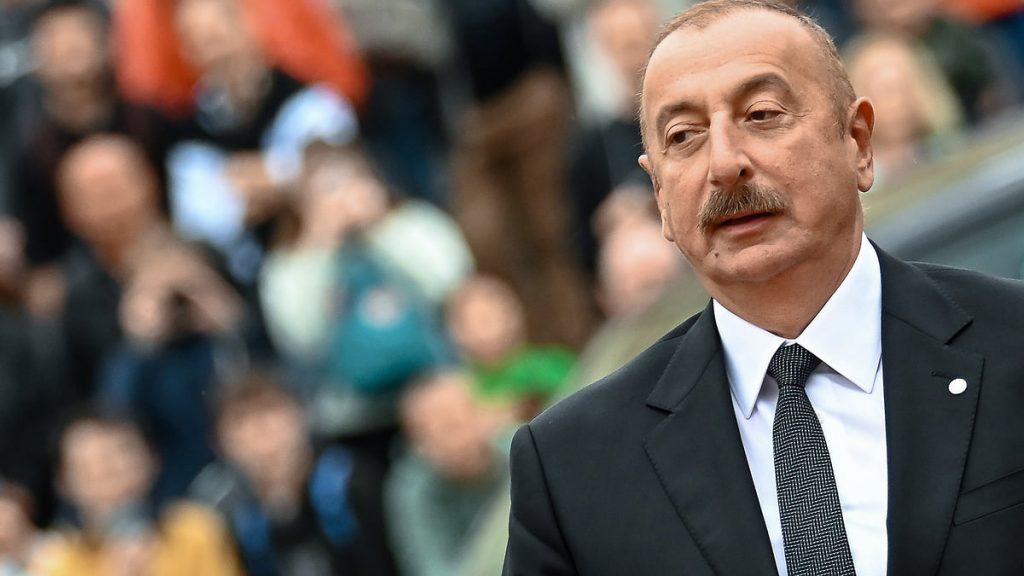
In addition to the current President Ilham Aliyev, whose candidacy was nominated by the ruling New Azerbaijan Party, the CEC registered six more candidates. Among them is deputy of the Milli Majlis (parliament) of the republic Zahid Oruj (self-nominated), Razi Nurullayev (leader of the National Front party), Gudrat Hasanguliyev (chairman of the United Popular Front of Azerbaijan party), Fazil Mustafa (chairman of the Great Creation Party), leader of the Great Azerbaijan Party Elshad Musayev, as well as self-nominated Fuad Aliyev.
Gudrat Gasanguliyev is considered the most experienced among all candidates. He has participated in every presidential campaign since 2003. At the same time, his results are not impressive – he never received more than 3% of the votes. Another veteran of presidential battles, parliament member Zahid Oruj, ran for the highest post twice and cannot boast great electoral success. In the 2018 elections, he received just over 3% of the vote. It is worth noting that both Oruj and Gasanguliyev, like other candidates, are not very similar to oppositionists, and if they are identical, then only to “court” oppositionists.
According to several analysts, their primary role is “extras” to create the appearance of competitive democratic elections. And they go into the election campaign under the Olympic slogan: “The main thing is not victory; the main thing is participation.” Based on the experience of the 2018 elections, candidates “screened” by the authorities practically do not conduct an election campaign and almost do not criticise the current president. Describing the presidential candidates, the director of the Institute of Political Management, Azer Gasimli, notes that they were once in the camp of the real opposition. However, they changed camps, entered the so-called “constructive opposition” role, and were “rewarded” with parliamentary mandates. Others were initially in the pro-government camp (Zahid Oruj). Still, others are simply moving forward to declare themselves or offer their services to the authorities.
Despite the well-known commandment for politicians that elections begin the day after the end of the previous ones, the early presidential elections announced by Aliyev took the opposition by surprise. A similar thing happened in the 2018 elections when Ilham Aliyev held them in April instead of October. Then, several opposition parties also decided to boycott the campaign. History repeated itself.
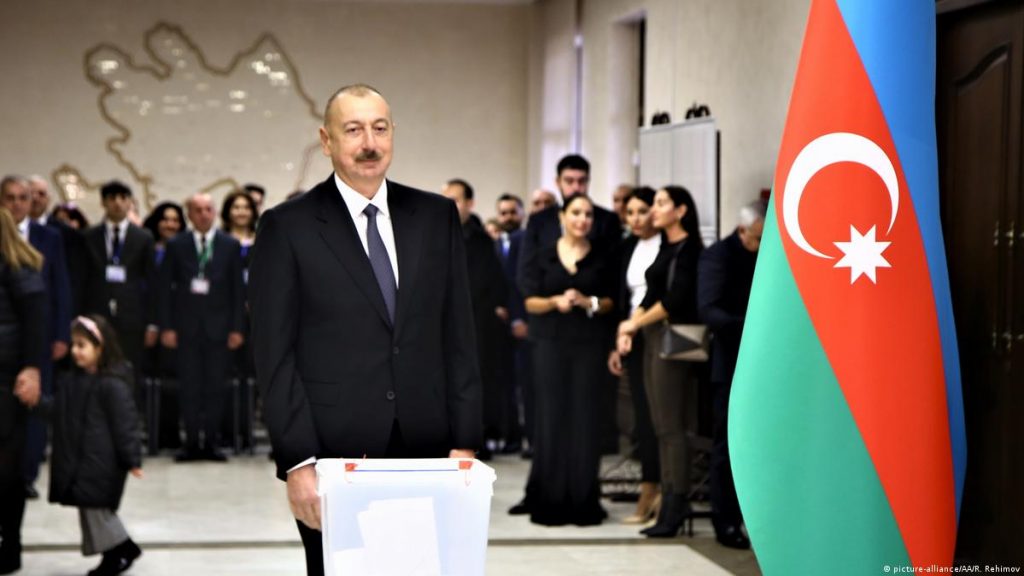
The Azerbaijani news agency Turan reported that Azerbaijan’s most prominent opposition parties, the Popular Front and Musavat, refused to participate in the early presidential elections scheduled for February 7. The lack of political competition and new arrests of critics of President Ilham Aliyev explained this party decision. The opposition also said that Aliyev’s sudden decision to hold early elections without public discussions was made deliberately to minimise the opposition’s ability to prepare for the elections: “This is in the interests of the government, which wants to turn the elections into a formal procedure,” Musavat noted.
According to the oppositionists, it is unrealistic to conduct election campaigning and collect 40 thousand signatures (this had to be done before January 8). According to Azerbaijani political scientists, from the point of view of political struggle, their refusal was a mistake. Parties can achieve their program goals only through participation in elected bodies. Turan agency columnist Tofig Turkel believes the opposition had to “choose the lesser of two evils.” “The Musavat party and the PFPA had two options – either to go to the elections, but there were no guarantees that their candidates would be registered, having identified a lack of a sufficient number of valid signatures in their support. After all, for the authorities, allowing a real opposition candidate to participate in the elections is fraught with the risk of reviving political life in the country, voicing alternative opinions and criticism of the government on television. This could bring society out of its state of apathy. Therefore, the authorities most likely would not register opposition candidates and would present this to society as the opposition’s weakness, its inability to even collect 40 thousand voter signatures. The other option was simply refusing to participate in the elections and questioning their alternative nature,” notes Turkel.
One way or another, the opposition’s refusal to participate in the elections, the modest electoral achievements of the nominated candidates and their closeness to power indicate that the current elections will be virtually uncontested and the winner has already been almost determined – the current President of Azerbaijan, Ilham Aliyev.
Many people have a question: why did Azerbaijan’s leader go to early elections? It would seem that after the victorious march in Karabakh, his rating broke new records and he has nothing to fear. Let’s look for the answer to this question in the geopolitical situation and the intricacies of Ilham Aliyev’s foreign and domestic policies.
Conqueror of Karabakh and gatherer of Azerbaijani lands
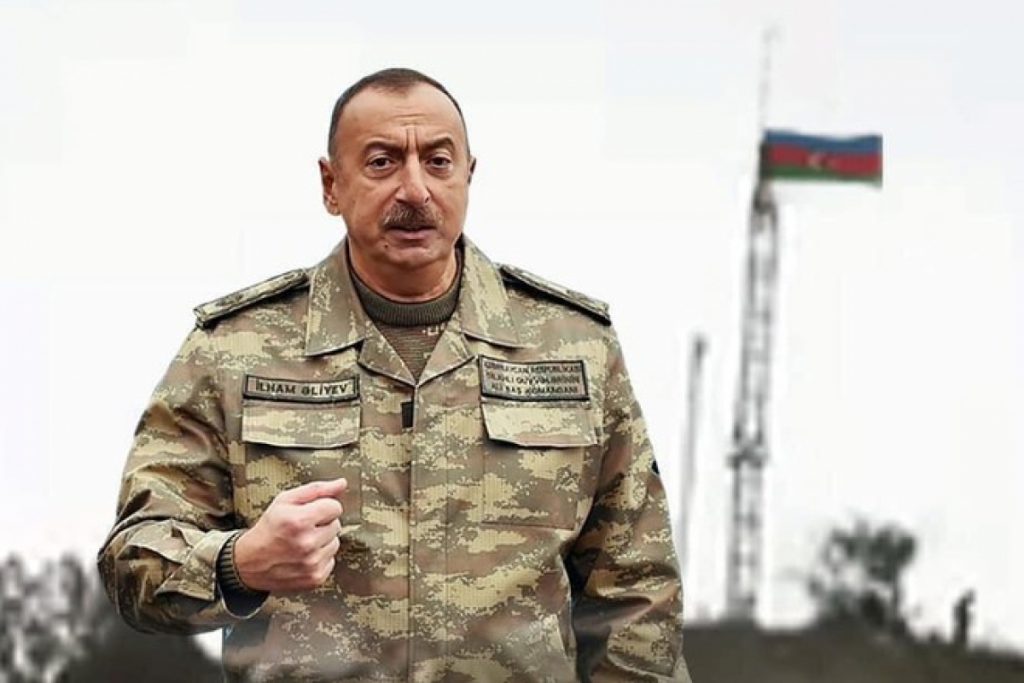
Many believe that one of the reasons for Ilham Aliyev’s campaign for early elections should be sought in Karabakh. Throughout the modern history of Azerbaijan, its return to its “native harbour” has been vital in the authorities’ rhetoric. And as Aliyev himself states, this is the primary goal of his political life.
Let us briefly recall that in the early 1990s, Baku lost control over Nagorno-Karabakh, its autonomous region populated predominantly by Armenians. As a result of protests and then military actions, he came under the influence of Yerevan. In his first inaugural speech, Ilham Aliyev called his neighbour an “aggressor state.” If you remember, Aliyev went to the previous elections to solve this problem. In the 2018 elections, he received 86% of the votes. Thanks to two military campaigns (44 days in 2020 and 2 days in 2023), Azerbaijan regained control over Karabakh. Aliyev’s relatively high rating is also evidenced by the fact that many oppositionists, including those living abroad, began to sympathise with him. It became almost impossible to oppose him. The victorious euphoria over the restoration of the territorial integrity of Azerbaijan in the country does not subside to this day. The main “culprit” of this, Ilham Aliyev, continues to “bathe” in the rays of glory and is awarded in the local press with colourful epithets: “victorious”, “conqueror of Karabakh” and “gatherer of Azerbaijani lands.” The ruling New Azerbaijan Party sees the current leader as the “eternal president.” “The liberator of Karabakh will be the eternal president. Ilham Aliyev has earned this post for 20 years of his politics and his service to our people,” says the head of the party’s central apparatus, Tahir Budagov.
According to Ilham Aliyev himself, the holding of early presidential elections is a consequence of the 30-year struggle for the reintegration of Karabakh and the beginning of a new era in the history of Azerbaijan. In one of his interviews, Ilham Aliyev said it would be fitting to hold elections throughout the country so that the head of state fully represents the Azerbaijani people and has greater legitimacy. According to the Central Election Commission head, Mazakhir Panahov, 26 polling stations will open in the liberated territories, and up to 20 thousand people will exercise their right to vote. “These are not only those who have already returned to their homeland but also numerous builders and installers who are engaged in the restoration of the region,” he emphasises.
The idea of reintegration of Karabakh and fair revenge has cemented the Azerbaijani nation for a long time and united it around the government, maintaining its legitimacy at a reasonably high level. And new symbols are already woven into the foundation of presidential legitimacy. Ilham Aliyev is not ready to miss such a moment; on the contrary, he is prepared to secure post-Karabakh legitimacy in early elections. One cannot think of a better way to capitalise the success achieved in the Karabakh direction. He is aware that the image of the “victory president” will lose its attractiveness over time; therefore, Aliyev must present other arguments supporting his legitimacy. And one of these arguments is the “untying” of the Armenian knot.
The Armenian knot
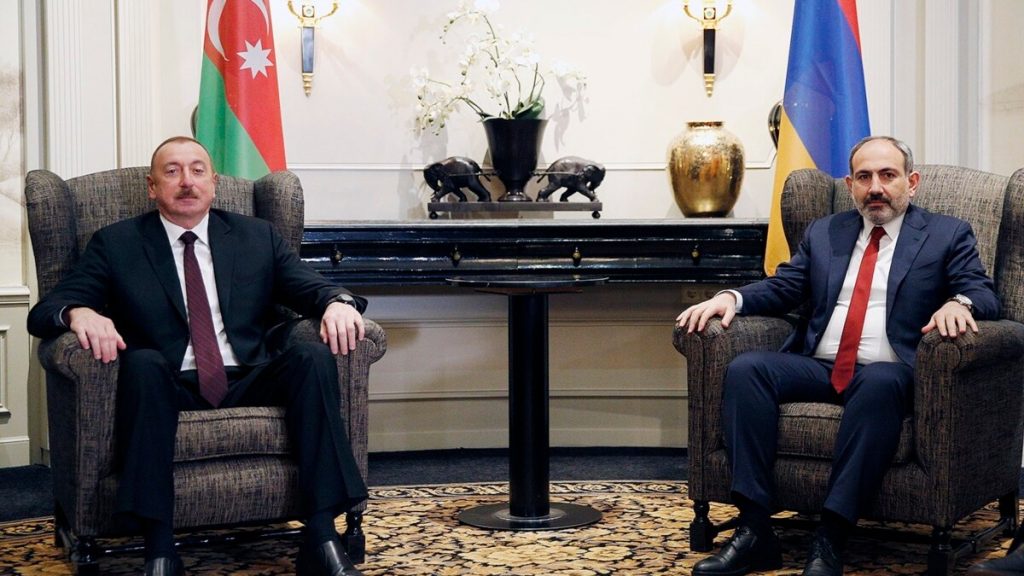
It would seem that by solving the Karabakh problem, Azerbaijan has cleared the way for signing a peace treaty with Armenia. However, Karabakh is only one of the conflicting issues in relations between the two countries; then territorial claims arise. If earlier the problem rested on the question of whose terms the peace treaty between Armenia and Azerbaijan would be signed – the Russian Federation or the West, today, it is evident that Baku will dictate the terms.
According to one of the conspiracy theories (peaceful), the appointment of early presidential elections is explained by the fact that Aliyev allegedly needs a popular vote of confidence for some fateful steps. And in this regard, there is a lot of talk about a peace treaty with Armenia.
It must be said that the surge of hopes for his signing has so far ended in nothing. At the end of 2023, representatives of both countries said the document could be signed before the New Year holidays. The holidays have passed, and optimism has given way to pessimism. There are many unresolved issues, but the parties have no desire to resolve them. General phrases about recognition of each other’s territorial integrity and the subsequent exchange of prisoners of war did not bring global changes. The bilateral gesture of goodwill also remained without any extraordinary consequences when Armenia withdrew its candidacy for hosting the next UN climate change conference COP29 in favour of Azerbaijan, and Azerbaijan, for this, supported the inclusion of Armenia in the Bureau of the Eastern European Group COP. The exchange of pleasantries turned out to be purely symbolic.
One of the cornerstones that prevents progress in signing a peace treaty is the issue of border delimitation and demarcation.
The Armenian side would like the delimitation to be carried out according to the maps of the USSR General Staff of the 70s; it was then that the borders of the Soviet republics were fixed in their current form. According to Armenian Prime Minister Nikol Pashinyan, based on these maps, Armenia gained independence. Carrying out work on delimitation and demarcation of borders according to the maps of the 1970s would mean the return of enclaves. During Soviet times, the Armenian village of Artsvashen was located deep in Azerbaijani territory; in the 1990s, it was occupied by Azerbaijani troops. The Azerbaijani villages of Karki, Barkhudarli, Yukhari-Askipara and Yaradullu were surrounded by Armenian territory and were occupied by Armenian forces after the collapse of the Soviet Union. At the same time, Karki is considered a critical settlement – the highway connecting Armenia with Iran passes through it. Prime Minister of Armenia Nikol Pashinyan voiced two possible options. According to one of them, enclaves can be left under the control of the side on which they are located. According to another, Artsvashen will return to the sovereignty of Armenia, and Azerbaijan will take back its villages.
Azerbaijani President Ilham Aliyev categorically disagrees with him. According to him, until 1969, the lands of the republic were transferred in pieces to the Armenians. Baku’s proposal is as follows: expert groups should go around the border and draw a line based on the situation directly on the ground. In other words, cards are not needed because every controversial issue should be resolved in favour of Azerbaijan. All the heights should remain behind it, possibly the areas separating the enclave villages. Aliyev also clarified that the Azerbaijani army will not retreat from its positions.
In a word, the situation is driven to a dead end, and the parties accuse each other of being unwilling to compromise. Of course, progress in the negotiations would be possible if we hypothetically imagine that both sides can reasonably exchange territories, considering each other’s interests. However, previous experience suggests that such a scenario remains unlikely. In its relations with Armenia, Azerbaijan will be guided not by the force of law but by the rule of force. Therefore, without the willingness of the parties to put the issue of border delimitation out of the equation, the signing of a peace treaty can be forgotten.
The Zangezur corridor
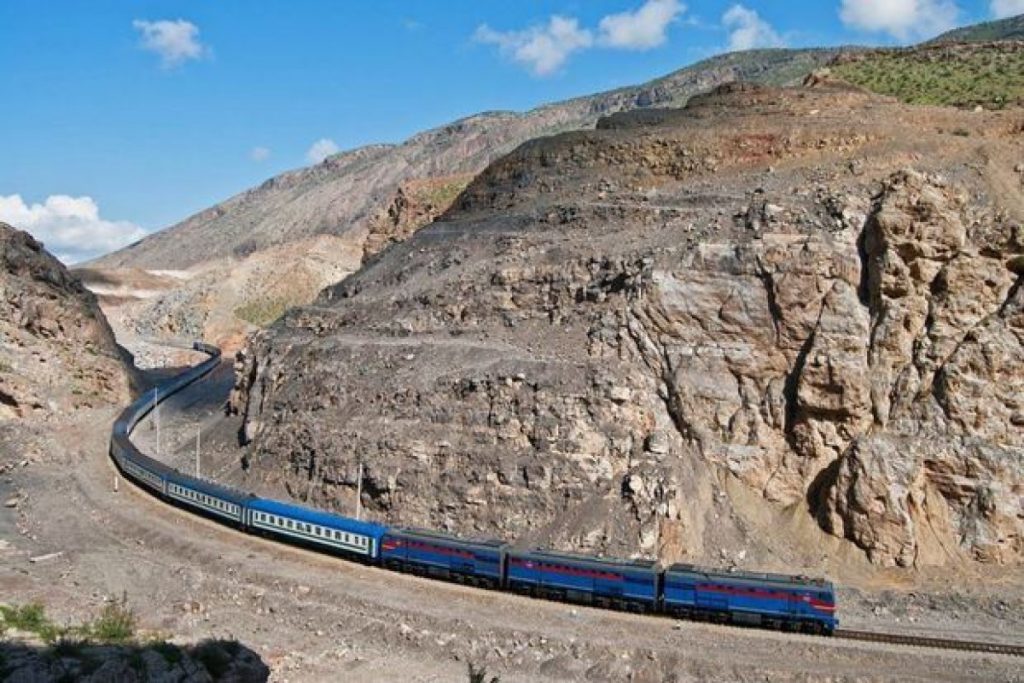
Another pressing issue affecting the lack of progress in the process of signing a peace treaty between the two countries is the Zangezur corridor.
Another conspiracy (military) version of holding early presidential elections exists in this regard. Aliyev needs strengthened legitimacy for a new war with Armenia. Some experts believe the elections will lead to a further escalation. Azerbaijan can forcefully “breakthrough” the Zangezur corridor – a road through the south of Armenia (Syunik region), which connects the main part of Azerbaijan with the Nakhichevan exclave (a non-sovereign region separated from the main territory of the country and surrounded by other states).
However, this version seems unconvincing. According to many experts, Azerbaijan is unlikely to decide on any new military actions. Still, the international community recognised Karabakh as part of Azerbaijan. Still, an attack on the sovereign territory of Armenia will meet fierce resistance in the Caucasus and the world.
The latest statements of Ilham Aliyev indirectly confirm this. Firstly, at a meeting with local journalists on January 10, 2024, he stated that France was behind the information “stuffing” about the forceful unblocking of the Zangezur corridor, which, according to him, was spreading all sorts of rumours about Azerbaijan’s invasion of Armenia. Secondly, the President of Azerbaijan announced the actual refusal of Baku from the Zangezur corridor, saying that the road to Nakhichevan will not go through Armenia, but through Iran. This is the same route, only it will be laid along the other bank of the Araks River – along it runs the Iranian border with both Armenia and Azerbaijan. He noted that on the route through Iran, “the construction of the first bridge has already begun,” and outlined the price of abandoning the Armenian route: “If the route I mentioned is not opened, then we do not intend to open the border with Armenia in any other place.” It is worth recalling Aliyev’s angry statements on the Zangezur corridor back in 2021. Then he said Azerbaijan would build it “whether Armenia wants it or not.” The price of Yerevan’s refusal from this route is not a new war but simply maintaining the status quo with a closed border with Azerbaijan.
Aliyev called the “Crossroads of the World” project promoted by the Prime Minister of Armenia Nikol Pashinyan, which is designed to involve regional communications, roads and railways between Armenia, Azerbaijan, Turkey and Iran, a PR campaign and added that “…Armenia does not fulfil any of the provisions of the tripartite Statements dated November 10 and neglects its obligations. That is why the country proposed to cover up this fact and simultaneously erase the words Zangezur Corridor. This expression irritates them very much…” As many experts note, the “Crossroads of the World” project looks unrealisable. It takes into account only the wishes of Yerevan, which none of the neighbours intends to implement.
The transfer of the road from Baku to Nakhichevan from Armenia to Iran could even suit Russia, which many consider supporting the Zangezur corridor. After all, Russia needs to restore the railway connection with Iran and Turkey, which existed during Soviet times, and it does not matter at all which bank of the Araks the rails will be laid along.
Abandoning the idea of the Zangezur corridor could remove one of the main obstacles to a peaceful settlement after 2020 and open up wide opportunities for signing a framework peace treaty. True, at the same time, relations between Armenia and Azerbaijan may become the same as Armenia’s relations with Turkey were after 1993 and to this day:
- The border is closed.
- No diplomatic ties exist.
- The rhetoric is loaded with threats and hostility.
As for the peace treaty with Armenia, it is Baku today that dictates the terms and sets the rules of the game, from the desire to oust any mediators from the negotiations – Russia, the European Union and the United States, to determine the future of the peace agreement itself. The American administration does not argue with this either. According to Assistant to the Head of the State Department O’Brien, the access of Azerbaijan and Armenia to a peace agreement depends at the current stage solely on Baku. Therefore, in the political interpretation of Baku, the eternal Hamlet question, whether to be or not to be, looks something like this: sign a framework peace treaty and strengthen its international authority or disrupt it to justify further expansion as a winner. Which of the two options Baku will choose largely depends on external factors.
The foreign policy context
There is no doubt that there is also a foreign policy context in Ilham Aliyev’s decision to hold early presidential elections. It is pretty symbolic that the day before December 7, the announcement date of the elections, US Assistant Secretary of State for European and Eurasian Affairs James O’Brien flew to Baku. The US representative discussed with Aliyev what was happening with Karabakh and the peace treaty with Armenia. Some experts believe this event prompted Ilham Aliyev to call for re-election within two months. It cannot be ruled out that in the context of US pressure on Aliyev to make peace with Armenia, the presidential campaign will allow the President of Azerbaijan to manoeuvre and postpone the meeting with Pashinyan indefinitely. There may be other information received from the envoy of the head of the US State Department, Blinken, that worried Aliyev. One way or another, the presidential campaign in Azerbaijan is taking place not only on a wave of victorious euphoria but also against the backdrop of a serious “cooling” in relations with the United States and the West.
Washington conditions
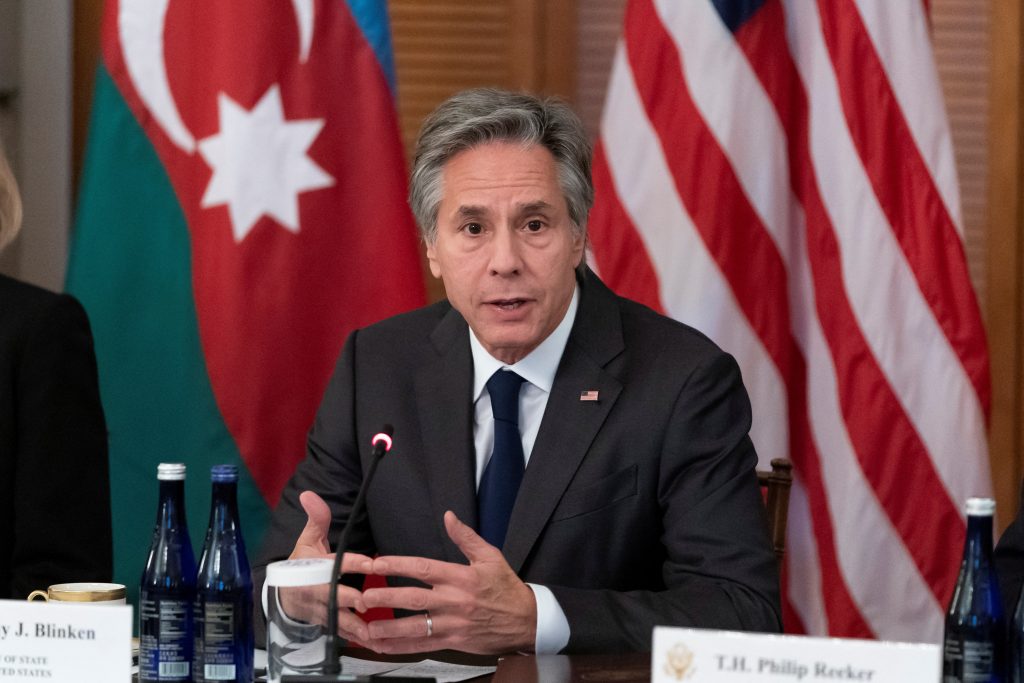
According to Baku, it was the United States that initiated the tension. Azerbaijani media close to the authorities wrote that representatives of the Armenian lobby in Washington want the Joe Biden administration to toughen its position towards Azerbaijan. Naturally, on the eve of the US presidential election, Joe Biden cannot simply “dismiss” the influential Armenian diaspora.
The Armenian Assembly of America and the Armenian National Committee of America are the leading Armenian lobbying organisations operating in the United States. The influence of Armenian lobbyists is so great that, at one time, they managed to block the appointment of Matthew Bryza to the post of US Ambassador to Azerbaijan, whose candidacy was presented to Congress by President Barack Obama. This diplomat was known for his pro-Azerbaijani statements and was also married to a Turkish woman. Armenian lobbyists are credited with the historic decision of the United States to recognise the massacres and deportation of the Armenian population in the Ottoman Empire in 2015 as genocide. Let us remember that the decision was made against the backdrop of Armenia’s defeat in the second Karabakh war and looked like moral support for Yerevan and an “injection” from Turkey, which supported Azerbaijan.
But the adoption by the Senate of the 907th Amendment to the Freedom Support Act of 1992, which provides for limiting US military assistance to Azerbaijan until it ceases hostilities against Armenia and Nagorno-Karabakh, is considered a particular success of Armenian lobbyists in the United States. Since 2002, its actions have been suspended for many years, including in 2022. Back in March 2023, State Department head Blinken stated that Azerbaijan needed protection, referring to the need to supply it with weapons from abroad. However, in November 2023, Assistant Secretary of State O’Brien announced that the United States would not renew the amendment. At the same time, the US Senate passed the Armenian Defense Act of 2023, which freezes any “military or other assistance” to Azerbaijan. And vice versa – it opens the way for Armenia to receive military assistance abroad. Last November, the Chief of the Armenian General Staff, Edward Asryan already, visited the headquarters of the US European Command in Stuttgart and discussed issues of reforming the Armenian army and providing US military assistance to Armenia.
At the request of Armenian lobbyists, in October 2023, a visit to Armenia by the American delegation led by the head of the US Agency for International Development (USAID) Samantha Power, as well as acting Assistant Secretary of State for European and Eurasian Affairs Yuri Kim. The US presidential administration signalled the republic about the need to strengthen bilateral contacts. In particular, the corresponding message was contained in a letter from President Joe Biden to Prime Minister Nikol Pashinyan, which, according to Western media, was brought with them by representatives from Washington.
The pressure on Baku continued to increase. First, a bipartisan group of House and Senate members put forward legislation that would require Washington to declare Azerbaijan’s actions a “campaign of ethnic cleansing,” end military ties between Baku and Washington, impose sanctions on Azerbaijani officials, and increase aid to Armenia. Later, Congress held hearings on the situation in the Transcaucasus, and the main speaker was the same Assistant Secretary of State, James O’Brien, who accused Baku of disrupting peace negotiations with Armenia.
“We have made it clear that there will be no normal relations with Azerbaijan until we see progress on the peace track,” he said, adding that Washington has cancelled several high-level visits, suspended military and other assistance, and may impose sanctions. O’Brien also noted that the United States insists on “full access” for Armenians to the territory of Nagorno-Karabakh, noting that Washington is closely monitoring all movements of Azerbaijani troops. In addition, a State Department representative said that Washington demands the withdrawal of Russian peacekeepers from the region after 2025. “Russian troops actually control two key border crossings from Armenia to Russia. We need to find a more stable path for the Armenian government and force the Russian peacekeepers to leave when their five-year mandate expires,” O’Brien said. According to him, Washington is ready to provide Baku and Yerevan with an “alternative.” The American official also demanded that Azerbaijan not cooperate with Iran on the Zangezur corridor project. “Any corridor should be created only with the consent of Armenia, which will lead to a transit boom for the countries of the region and world markets since access to certain goods will be ensured. A transport corridor created by other means, by force or with Iranian participation, will be met with a decisive response,” the Assistant Secretary of State warned.
Apparently, the euphoria from the military successes in Karabakh has not yet passed in Baku, and the authorities pointedly reject any attempts at external pressure. The Azerbaijani side is infuriated by imposing indirect sanctions against them by refusing military assistance. In reality, this will not affect Azerbaijan’s combat capability since the main flow of modern weapons comes from Turkey and Israel.
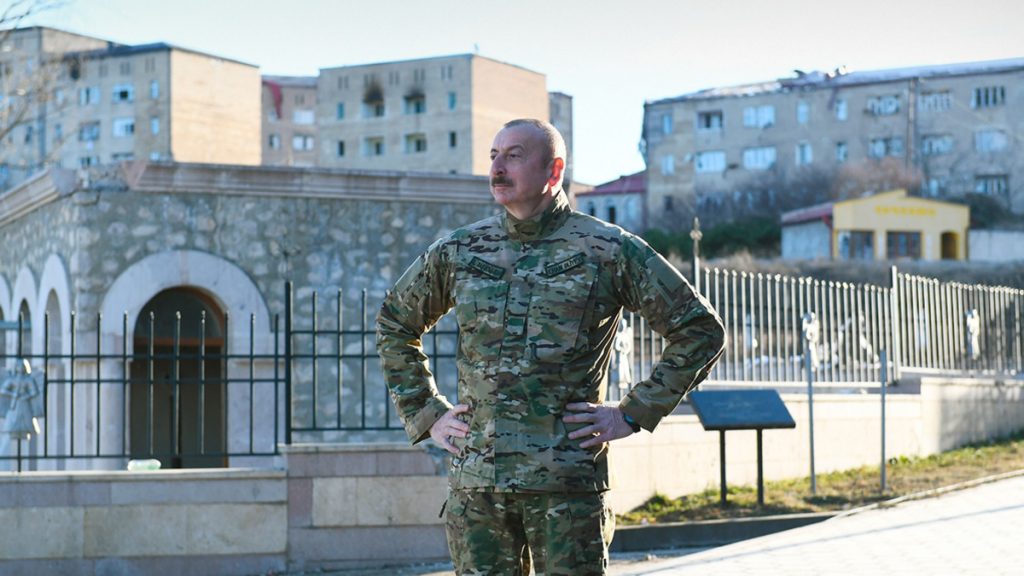
Azerbaijani President Ilham Aliyev, speaking at the “Karabakh: Returning Home after 30 Years” forum, said that the current Washington administration had nullified the strategic relations between the two countries. At the same time, Aliyev referred to the words of the US Assistant Secretary of State for European and Eurasian Affairs, James O’Brien (who, by the way, was in the capital of Azerbaijan at that time), that Washington and Baku would not have such relations as they had before. Ilham Aliyev, in response, made it clear that the “wedge of light” did not fall on the United States: “If they [Washington] say that relations will remain as before, and I hope to hear this today, then we will be able to restore the Washington process. If this does not happen, then only Brussels and Moscow will remain [as mediators in the peace process],” the Azerbaijani President added.
The results of the meeting between Aliyev and O’Brien were not reported. However, the next day, Ilham Aliyev announced early presidential elections, and the anti-American campaign intensified in the country. According to the BBC, graduates of American universities were declared spies. Authorities claim that there is a whole network of secret American agents operating in the country who use the promotion of democracy and freedom of speech as leverage on Baku. Also adding fuel to the fire was a statement by USAID Director Samantha Power, who called the resettlement of Armenians from Karabakh “forced.” Azerbaijani Presidential Aide Hikmet Hajiyev responded to Power on Twitter (X): “There is no longer room for USAID in Azerbaijan!” Against the backdrop of deteriorating relations between Baku and Washington, arrests began of journalists who hid the sources of their funding.
Since 2014, a decision was made at the legislative level to make it more challenging to receive any foreign grants. As the BBC notes, the entire media sphere is under official state control; not a single independent television or radio is broadcast within the country, all print publications expressing a critical point of view are closed, and websites are blocked. Reporters Without Borders ranked Azerbaijan 151st out of 180 countries in its annual press freedom ranking, between Pakistan and Afghanistan.
Negative fracture
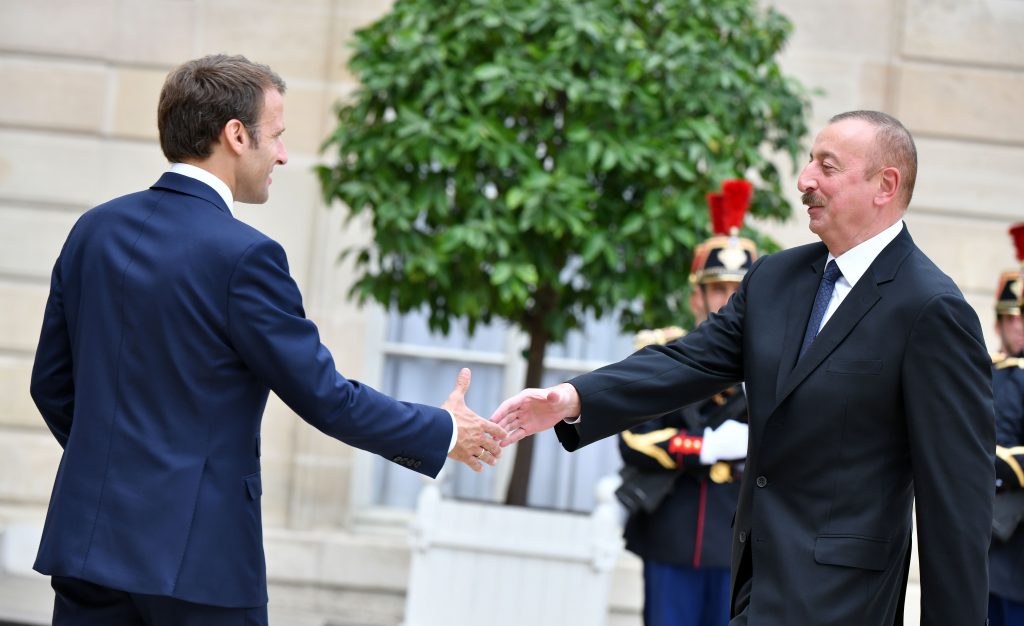
As relations with the United States worsen, ties with France also show a particular deterioration. Gone are the days when foundations close to Aliyev financed, for example, the restoration of thousand-year-old churches in France and statues in the park of the Palace of Versailles; Aliyev’s wife, Mehriban (by the way, today is the vice-president of Azerbaijan), was awarded the Order of the Legion of Honour, and France was one from lobbyists of Azerbaijan in Europe. Today, it’s hard to believe, but until 2020, France was one of the main weapons suppliers to Azerbaijan. According to many experts, a negative turning point in relations occurred during the second Karabakh War, when France was the first to defend Armenia.
In a desire to please voters of Armenian origin, the French Senate then adopted a resolution demanding that Azerbaijan withdraw its troops from the territories adjacent to Karabakh, which Armenians occupied in the first Karabakh war of 1992-1994. This statement caused a storm of indignation in Baku since the main population of these territories before the war were Azerbaijanis, whom Armenian forces expelled from there. In response to this, Aliyev called on the French authorities to “hand over Marseille to the Armenians,” and President Macron only aggravated the escalation in the region by declaring that Syrian mercenaries were fighting in the ranks of the Azerbaijani army. Then, the resolution of the French Senate did not help the Armenians in Karabakh in any way due to its declarative nature: not a single country recognised the independence of the self-proclaimed republic, including France itself.
Although there are other versions of what is happening: thus, former Azerbaijani diplomat Arif Mamedov, who worked for many years in the structures of the Azerbaijani Foreign Ministry and, in 2015, joined the opposition and stayed in Europe, believes that the issue is in the property relations of the Aliyev family in France: “…the Aliyevs had a lot and, probably, today there is still a lot of property and business relations with France. I do not rule out that perhaps there could have been some problems there, which was one of the factors for such a deterioration in relations. I don’t know this; I can only guess. I know family members have property both in Paris and on the Côte d’Azur.” – summed up the former diplomat.
According to Mamedov, in Azerbaijan, there is family power; one can say that it is a sultanate, where one family decides everything. “We have neither a judicial branch nor a parliament—one person decides everything. Parliament only confirms what the president woke up in the morning and decided. If he woke up in the morning and decided to hold elections, then they hold elections. If he woke up and decided to appoint his wife as vice president, he would do it. And it never happens that even one person objects. This is manifesting at the international level,” sums up Arif Mammadov.
Currently, relations between Baku and Paris are not just cold but severely frosty. President Ilham Aliyev accuses France of instigating war in the South Caucasus over arms supplies to Yerevan. At the end of October 2023, following the visit of French Defense Minister Sebastian Lecornu to Armenia, the parties signed an agreement to supply the Armenian army with three GM-200 radars and, in the future, Mistral short-range air defence systems. In addition, France promised to deliver 24 Bastion armoured vehicles soon, and another 26 vehicles of this type are currently in production. The French Senate advised that the authorities send Caesar-type self-propelled artillery units to Armenia. Paris was criticised for its pro-Armenian stance, its support of independent media and opposition, and even its colonial past. The Azerbaijani Foreign Ministry declared two French diplomats persona non grata, and a French businessman who had lived in Baku for a long time was arrested on charges of espionage.
Paris responded with a Senate resolution demanding the imposition of sanctions against Azerbaijan. The nature of the document cannot be called new. Both houses of the French parliament, the National Assembly and the Senate have passed resolutions along these lines earlier. The document not only expresses support for the territorial integrity of Armenia but also condemns Azerbaijan’s military operation in Karabakh on September 19-20, 2023. In addition, the resolution demands the adoption of the harshest measures for “military aggression,” including the confiscation of the assets of Azerbaijani leaders and the imposition of an embargo on oil and gas imports. A similar resolution was already adopted by the European Parliament members on October 5, 2023, two weeks after the culmination of the Azerbaijani army’s military operation in Nagorno-Karabakh. The European Union’s High Representative for Foreign Affairs and Security Policy, Josep Borrell, accused Azerbaijan of encroaching on Armenia’s sovereignty, expressing serious concern about President Aliyev’s recent territorial claims and warning of severe consequences for relations with Azerbaijan.
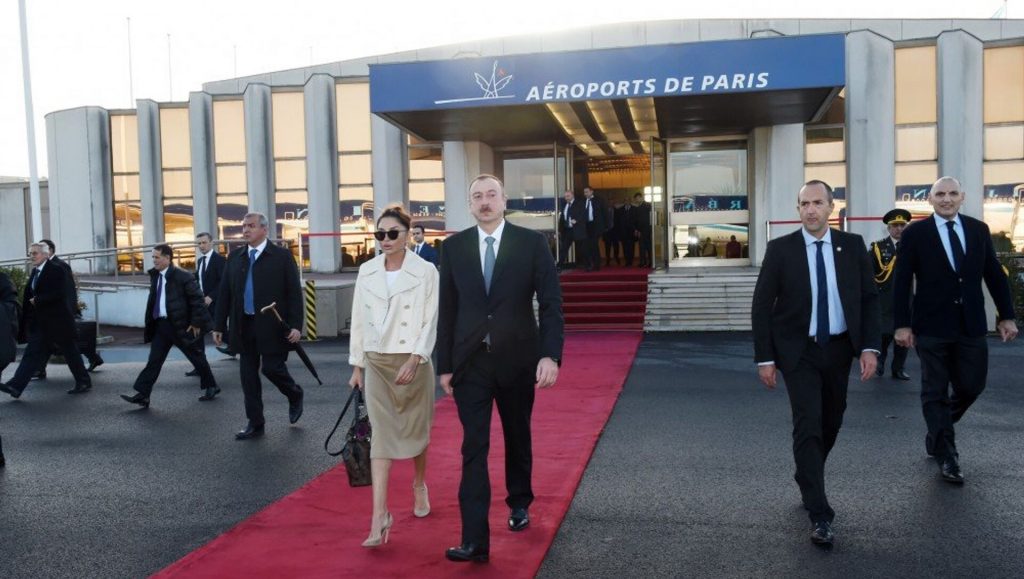
An interesting detail is that in 2022, after a similar Senate resolution, the Ukrainian media actively criticised France and the Armenian diaspora for trying to divert the attention of the world community from Ukraine to the problems of Nagorno-Karabakh. The Senate resolution was called undemocratic: “The French Senate adopted a rather contradictory and absolutely undemocratic resolution, which demands an embargo against Azerbaijan concerning oil and gas and, accordingly, tries to give all the resources that are being used today, including to support Ukraine in the war with Russia, in support of Armenian separatism,” expert Igor Chalenko said in comments to Ukrainian Pravda. In his opinion, thus, attempts by French senators to shift attention from the problems of Ukraine to Armenia carry risks for Europe itself. And only Yerevan and Moscow are interested in such a development of events. There was no reaction in Ukraine regarding the Senate resolution of October 2023.
But in Ukraine, they responded to the proposal of the Monitoring Committee of the Parliamentary Assembly of the Council of Europe (PACE), which decided not to approve the powers of the Azerbaijani delegation. This decision was made at the suggestion of German MP Frank Schwabe, who led the initiative to limit Azerbaijan’s powers, citing ongoing human rights violations, a growing number of political prisoners, Azerbaijan’s refusal to invite PACE to evaluate the upcoming presidential elections on February 7 and the denial of access to PACE speakers to Lachinsky corridor in 2023. The newly appointed Chairman of the PACE Committee on Migration, Refugees and Displaced Persons, Alexey Goncharenko, did not support Schwabe’s proposal, noting that he is not the only friend of Azerbaijan in PACE. As a result, the Baku delegation announced the cessation of its work and interaction with the Parliamentary Assembly of the Council of Europe, and Azerbaijani parliamentarians responded in a mirror manner, demanding that their government withdraw the French company Total from the Azerbaijani gas field Absheron and suspend economic contacts with Paris. The parliamentarians also called for freezing the assets of French officials, preventing the participation of French companies in any projects on the territory of Azerbaijan and recognising the independence of the French overseas territories of New Caledonia and French Polynesia in the Pacific Ocean, as well as Corsica.
It must be said that, despite the threatening statements of the Milli Majlis, Baku is unlikely to sever economic ties with Paris. The French Total is an important partner of Socar in developing a complex gas field on the Caspian Sea shelf. After the withdrawal of the Norwegian Statoil from the project, the Azerbaijanis are highly interested in the advanced technologies of Western energy companies.
The niffy gas
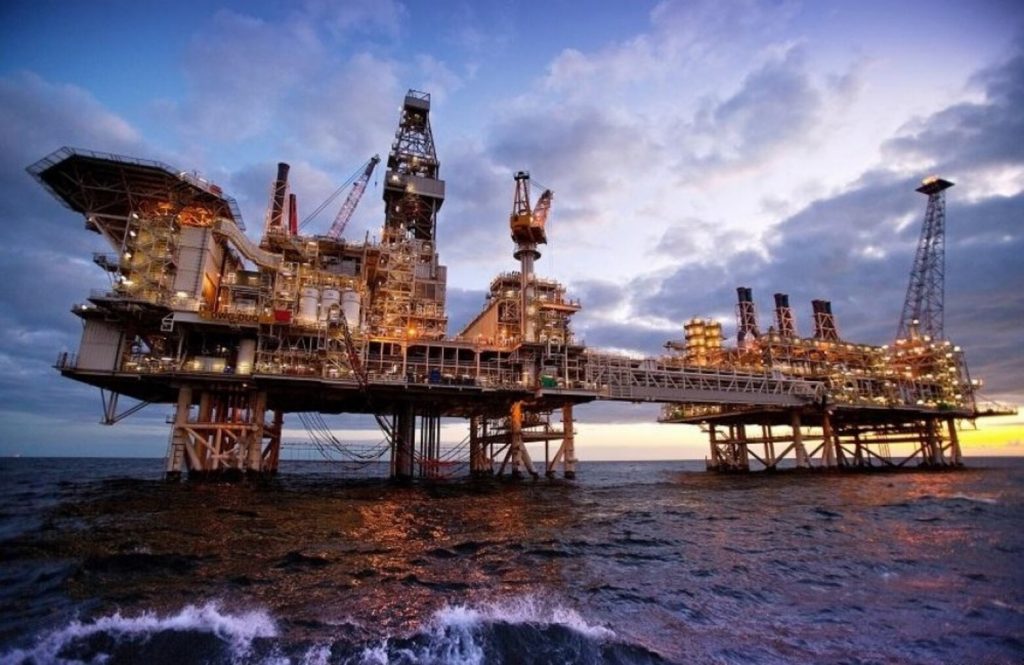
Western rhetoric about the embargo on gas and oil supplies particularly irritates Aliyev. He did not forget that Europe came to Azerbaijan in search of an alternative to Russian gas. In the summer of 2022, the head of the European Commission, Ursula von der Leyen, visited Baku and, smiling broadly and shaking President Aliyev’s hand, agreed to double gas imports from Azerbaijan over the next five years. Then, an EU official called Azerbaijan a “key partner” and a “reliable supplier,” and Baku regarded this step as support and a sign of high trust in the EU. Today, five EU countries are already receiving Azerbaijani gas. Among them are Bulgaria, Hungary, Greece, Italy and Romania. Some other EU states have also expressed interest in purchasing gas from Baku.
During the Bulgaria-Serbia gas interconnector opening ceremony that took place on December 10 in Nis (Serbia), Aliyev confirmed that Baku will fulfil its promise to Brussels to double gas exports to Europe to 20 billion cubic meters per year by 2027. “The numbers already demonstrate that we are confidently moving towards this goal,” Aliyev said, adding that Azerbaijan exported just over 8 billion cubic meters of gas to Europe in 2021, a figure that will rise to “about 12 billion cubic meters” this year. “This will amount to 50 per cent of the total volume of Azerbaijani gas exports,” he said. To double gas supplies to Europe, Baku must increase gas production and the capacity of the three pipelines that make up the Southern Gas Corridor, which carries Azerbaijani gas from the Caspian Sea to European markets.
At the beginning of 2024, the situation changed, and instead of “thank you,” the European Parliament called for a review of cooperation with Baku in the energy sector. According to MEPs, the Azerbaijani authorities do not adhere to their international obligations, which is incompatible with the concept of “strategic partnership” and “with the goals of the EU’s foreign policy.” In addition, European parliamentarians call on the EU to reduce its dependence on gas exports from Azerbaijan. And the gas, in their opinion, is not so Azerbaijani, but with a Russian “flavour”. The resolution calls on the European Commission to investigate information that “Azerbaijan actually exports Russian gas to the EU.”
In response, Aliyev made it clear that he was not going to change his position regarding the West and would not succumb to blackmail either: “We will not allow you to speak to us in the language of threats or behave arrogantly,” and added that “… in case such a position prevails [refusal of cooperation with Azerbaijan in the energy sector], then the companies that have entered into long-term contracts with us will have to pay fines of hundreds of millions or even billions of euros. Therefore, those in charge who make such absurd statements should be more careful,” Aliyev noted.
Geopolitics with an eye on the voter
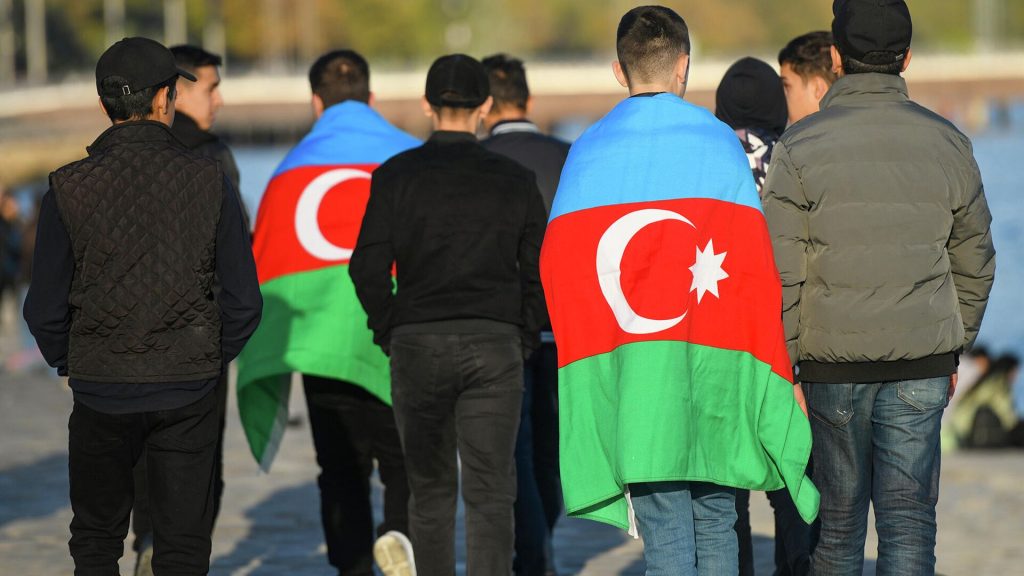
French politicians are forced to look at some of their voters and consider their requests when making foreign policy decisions. Therefore, another component influencing the toughening of France’s position on Azerbaijan is the influence of the Armenian diaspora. The number of Armenians in France is approaching 600 thousand. France is believed to be the second country, after the United States, with the most powerful and influential Armenian diaspora. Therefore, it has always been important for French politicians to gain the favour of the Armenian community. In Paris, there is a Council for the Coordination of Armenian Organizations in France, which hosts dinner parties where French politicians, ministers, and even presidential candidates gather and “reminds” the political elite of the Armenian agenda in the country’s politics. By the way, the issues of genocide and all the laws related to this hundred-year-old tragedy, assistance to Armenia and Nagorno-Karabakh have always been used in election campaigns. The topic of financing presidential candidates depended to a large extent on the “correctness” of their perception of the “Armenian” issue.
Emanuel Macron’s current tough stance on Baku, of course, lies not only in the Armenian genes of his maternal grandfather or the “promissory notes” of the Armenian community, which generously financed his election campaign. The South Caucasus is a good platform for promoting geopolitical interests. France is already “fertilising” Georgia, where French business is actively operating. Even the official Azerbaijani media are promoting the narrative that Georgia is already in Macron’s “pocket” since the country’s current president, Salome Zurabishvili, was born and studied in France and holds a French passport. Just like the informal leader of Georgia, Bidzina Ivanishvili, who also has significant assets in France. As for Armenia, it is already considered an outpost of France in the South Caucasus. At the same time, Yerevan’s even greater “attachment” to Paris gives France an excellent opportunity to get closer to Iran and “annoy” Putin and Macron to rehabilitate themselves for their failures on the African continent.
To a certain extent, Azerbaijan remains an “obstacle” in the way of further advancing Paris into resource-rich Central Asia and developing an alternative transport route to Europe bypassing Russia. Of course, Aliyev’s bold policy towards the West is not least due to the support of his strategic ally, Turkey. Among the experts, a definition even appeared – “Turkish disease”. This is when excessive foreign policy ambitions contrast with modest economic results. In this sense, Ilham Aliyev can safely be called a “Turkish imitator”; it is no coincidence that Turkish President Erdogan is his first adviser, and he simply copies many of the steps of his great friend. In foreign policy as well.
In this case, given the tense foreign policy context of 2024, the early presidential elections also look like an attempt by the Azerbaijani authorities to use advantageous opportunities. In this sense, Aliyev’s calculation is simple: fewer people will be willing to intervene than if the elections were held in 2025. The main centres of influence will be busy with elections at home. In 2024, important elections will be held in different regions worldwide. Presidential elections are scheduled in Russia (in spring) and the United States (in autumn). Moreover, this summer, the European Union will elect a pan-European parliament. Baku will be one of the first to go through the election campaign. Then, having taken up “all-round defence,” Aliyev will closely monitor what is happening, trying, if possible, to prevent the strengthening of the Western presence in the Caucasus since he understands that this is fraught with consequences for his power.
The battle between TV and refrigerator
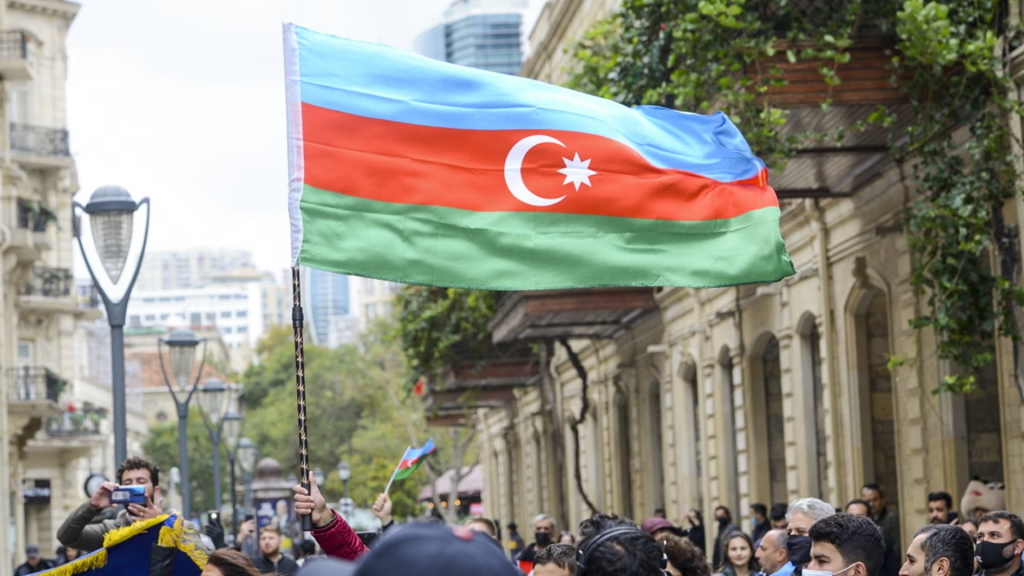
In addition to the Nagorno-Karabakh factor, the country, during Aliyev’s presidency, became a regional leader, implementing a prosperous trade and economic policy and enjoying the full support of Turkey. At the end of 2022, Azerbaijan’s GDP amounted to $78.7 billion. During the reign of Ilham Aliyev, the figure increased almost 11 times. This is a record pace for the republics of the former USSR. A slight decline occurred only during the pandemic and 2015–2016, when oil prices fell, and the pace of construction within the country fell. Based on the results of 11 months of last year, GDP in Azerbaijan increased by only 0.8% and at first glance, this may indicate that there is no particular growth in the economy. By the way, Aliyev’s critics are constantly talking about this today. However, the President of Azerbaijan himself is not so pessimistic and, in an interview with Euronews, said: “These figures do not reflect 100 per cent economic indicators or people’s living standards.” “We know countries with very low economic growth but with very developed economies. The higher the GDP, the more difficult it is to increase growth, especially in today’s geopolitical situation, when two of our neighbours and two of our main trading partners – Russia and Iran – are under sanctions.”
The fuel and energy sector mainly ensures the economic growth of Azerbaijan. Nevertheless, in general, there was a slight decline in the oil industry. However, as experts note, this is a well-thought-out policy for producing various raw materials. If in January-November 2023, oil production with gas condensate in Azerbaijan amounted to 27.695 million tons, which is 7.4% lower than the exact figure in 2022, then over the same period, gas production, reaching 44.221 billion cubic meters, increased by 4.1 %. And in the production of “commercial gas,” the growth was 4.3%.
As a result, the country could fulfil its obligations for gas supplies to Turkey, where 42.1% of the produced went, and to Italy – 39.2%. Thus, having reduced production volumes in one area – oil, Azerbaijan increased them in another – gas. In addition, there is a second reason for the decline in the oil industry, which is very noticeably manifested in the country’s balance of payments indicators and is the difference in prices from the raw materials sold. According to the results of the nine months of last year, the country’s current account surplus amounted to $6.7 billion or 12.5% of GDP. We are speaking about the surplus, not the entire balance of payments, and the difference between the amounts that entered the country and those that left it is a perfect indicator. However, compared to the same period last year, it is still 62.3% less, which is due to a decrease in oil and gas prices on international markets in 2023.
During Ilham Aliyev’s reign, unemployment in the country decreased from 9.2% to 5.5%. In total, about 1.96 million new jobs have been created in Azerbaijan. According to the Azerbaijani Statistical Service, the minimum wage increased from 9 manats ($5.29) to 345 manats ($202), and the average pension increased from 17.7 manats ($10) to 372.1 manats ($218). Azerbaijan’s population is 10.2 million people, and during the reign of Ilham Aliyev, it grew by about 24%. Travelling from Azerbaijan for permanent residence to other countries has become less frequent (3.8 thousand people in 2003 versus 1.1 thousand people in 2022). Also, the presidency of Ilham Aliyev saw a surge in the birth rate – almost 176 thousand babies were born in 2011. Similar indicators were recorded in the country only in 1964 and 1985–1992. One of the main problems is that the country is experiencing so-called water stress – an acute shortage of drinking water. Officials estimate the country has lost 15% of its water resources over the past 30 years and could lose another 20% by 2040. In April 2023, a trial state project for seawater desalination was launched in Baku to partially solve these problems.
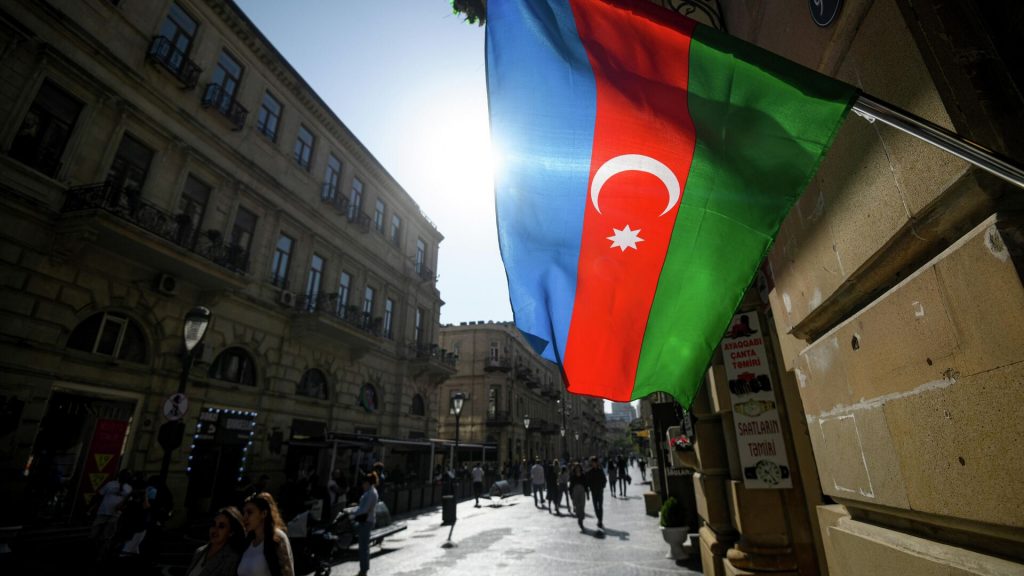
Of course, the relatively positive dynamics plus the reintegration of Karabakh provide Aliyev with the support of the population that his father, Heydar, could only dream of. However, further confrontation with the West and the possible introduction of a sanctions regime could significantly worsen the internal situation, and problems of an economic nature will come to the fore. Therefore, it is possible that Aliyev played ahead of the curve and, by holding elections, “sought out” his place in power before the problems of the refrigerator prevailed over the TV.
As critics of Ilham Aliyev notice, not everything is as rosy in the country as the official Azerbaijani authorities proclaim. In the shadow of the Karabakh victory, many internal problems remain. BBC notes that the minimum wage, which has been growing in the country for years, will remain at the same level in 2024 – just over $200 per month. Additionally, since 2020, the number of people receiving a disability pension has been constantly decreasing, although before, their number only grew yearly. Also, in 2023, the preferential income tax for small businesses will be eliminated, and entrepreneurs will pay not 5% of profits but 20%. Not everything is so good with food prices. The average annual food inflation in Azerbaijan was about 20%.
Officials attribute this to inflation in importing countries and rising world prices for raw materials and transportation. Independent experts agree with this explanation. They add that the consequences of global inflation were so serious for Azerbaijan because the country is almost entirely dependent on imports, and the population’s real incomes are not growing.
Another tension matter is the restoration of Karabakh, for which $7 billion has already been spent from the state budget. As part of the “Great Return” ideology, the resettlement of hundreds of thousands of people who lost their homes in the First Karabakh War of the 1990s is envisaged. Baku must live up to high expectations and ensure that the people who move there are happy with everything. And under the conditions of the Azerbaijani system this will not be easy to do. For example, it is not a secret that the majority of fertile lands will be controlled by big holdings belonging to a famous family.
Now, there is victorious euphoria in the country, but it is essential that in a few years, it does not give way to deep depression. Building several hotels with restaurants in Shusha and holding pompous conferences there does not mean breathing life into the region. Today, residents of the country have many complaints about the fact that close attention to Karabakh is being carried out to the detriment of other regions. This is evident in the popularity of a meme posted on a satirical Facebook page. It compares a dilapidated high school in the south-central Azerbaijan town of Imishli to a newly renovated barn on a goat farm in Karabakh.
Former diplomat Arif Mamedov, one of the oppositionists to the Aliyev regime, in an interview with the Internet portal Rfi, accused Aliyev of turning Karabakh into a platform for money laundering: “Ilham Aliyev actually turned Karabakh into an offshore, which only companies associated with his family, as well as Erdogan’s, are allowed. That is, huge amounts of money are being laundered there under the guise that the districts are being reconstructed. Something is being done there on its own, roads are being built, infrastructure is being built, but at the same time, there is a huge amount of money laundering going on.”
Aliyev’s opponents talk a lot about corruption in the country. However, under Ilham Aliyev, the anti-corruption campaign began in Azerbaijan. Since 2004, a separate law, “On the Fight against Corruption,” was adopted, several state programs were adopted, and an anti-corruption committee and centres to provide assistance to citizens were organised. However, according to many experts, this is just a ceremonial showcase. The country has been mentioned several times in connection with international corruption scandals. After publishing the “Pandora dossier,” the Organized Crime and Corruption Reporting Project (OCCRP) stated that Ilham Aliyev’s relatives and entourage owned 84 offshore companies in the British Virgin Islands. Over the years, the Prime Minister of Malta and several deputies of the German Bundestag were suspected of receiving a bribe from the Azerbaijani authorities.
In his comment to Novaya Gazeta-Europe, Arif Yunusov, the head of the conflictology department of the Azerbaijani Institute for Peace and Democracy, notes: “There is Azerbaijan, and there is the Aliyev’s family. It’s not the same thing. It is not Azerbaijan that earns money; Aliyev and his entourage earn money. Over 20 years, Azerbaijan has officially earned about $160 billion from oil and gas. But it’s official. According to independent experts, the actual figures vary from 180–190 to 240–260 billion dollars. And the lion’s share of this difference went into the pocket of the president’s family,” says Yunusov. Earlier, BBC journalists wrote about the connection between Aliyev’s daughters and the ownership of shares in a gold mining company.
Any social discontent in Azerbaijan has long been harshly suppressed. So, in June 2023, local residents began protests at the same gold mining field. Its part allegedly belongs to Aliyev’s daughters and is located in the mountainous area near the village of Soyudlu. The reason for the protests was the intention of a gold mining company to build a new reservoir on pasture lands to drain acidic water. People came out to a rally, which was suppressed. According to the reports, ten people were injured; some of them were poisoned by tear gas, and some received physical injuries.
According to Freedom House, the country is in 193rd place (210 positions in total) in the political and civil liberties ranking, with the “Not Free” mark.
Therefore, it is difficult to believe that democratic transformations await Azerbaijan soon. Because democratising the country means freedom of choice and speech, this development path has little in common with Aliyev’s management strategy. It can already be stated that his future course will be aimed not at the West but at the East – towards strengthening the regime of personal power. And elections are only one of the tools confirming its legitimacy.

